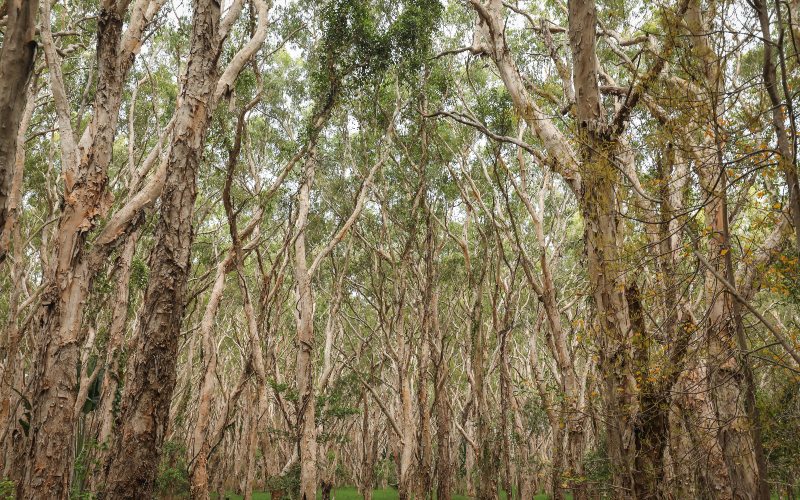
In a decisive environmental landmark, the Environment and Lands Court in Ol Kalou has ordered an immediate ban on planting Eucalyptus trees within 30 metres of any river, lake, wetland, stream, pond, dam or ocean, and within 10 metres of neighbouring plots.
The nationwide ruling is aimed at protecting water-sources and head-waters from being drained by the fast-growing tree species.The judgment, handed down by Justice Mugo Kamau, further imposes that tree-lots in marshy or swampy areas cannot be established without prior written clearance from the Cabinet Secretary for Environment and Climate Change.
The Court gave Parliament a 12-month window to enact specific legislation regulating eucalyptus cultivation and set interim rules to guide farmers and landowners in the meantime.The case emerged from a public-interest petition filed in 2022 alleging that uncontrolled eucalyptus cultivation has led to drying streams and lakes in western counties.
Environmental lawyers pointed to dramatic falls in water levels in Kisii and Nyamira where eucalyptus farms dominate. In the ruling the Court held that the species’ aggressive water consumption and high root-system extraction pose a serious threat to Kenya’s fragile water-catchment ecosystems.
Officials now must remove or prohibit any eucalyptus planted in contravention of the new buffer-zones. The judgement defined small parcels, irrigated farmland, and low-rainfall zones as high-risk for hiring the species, and schools, homes or neighbours in such ecologies must comply or face action.
The Kenya Forest Service and the National Environment Management Authority were named respondents along with the Cabinet Secretaries for Environment and Water Resources.Environmentalists have welcomed the decision as a “watershed moment” for conservation, but timber and furniture sector leaders have cautioned about potential disruptions in supply of poles and firewood derived from eucalyptus.
They are now calling on government agencies to roll out alternative fast-growing species and transition plans for farmers.The ruling sends a strong signal that Kenya’s judiciary is willing to enforce ecological protection even when it collides with long-standing commercial interests.
Enforcement will now depend on monitoring by county governments and the national agencies. Landowners, farmers and developers are advised to review existing eucalyptus plantations and await guidelines on permissible new plantings.
As Kenya grapples with climate change, dwindling water tables and ecosystem degradation, the Court’s decision could mark a turning point in how forestry, land-use and water-conservation policies converge. Failure to comply will not only threaten legal sanction but leave whole watersheds vulnerable to collapse.






